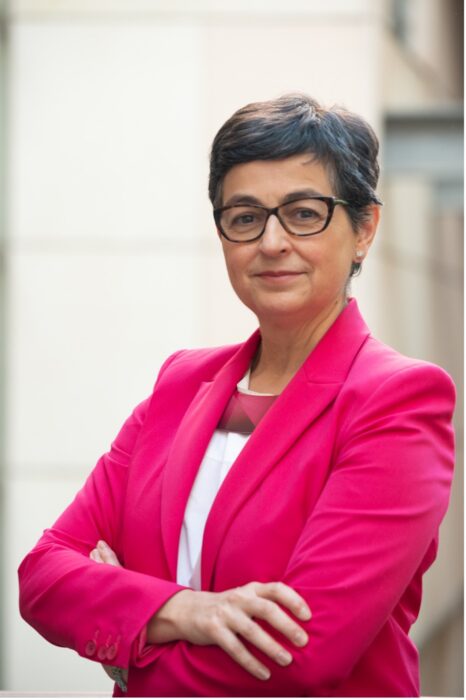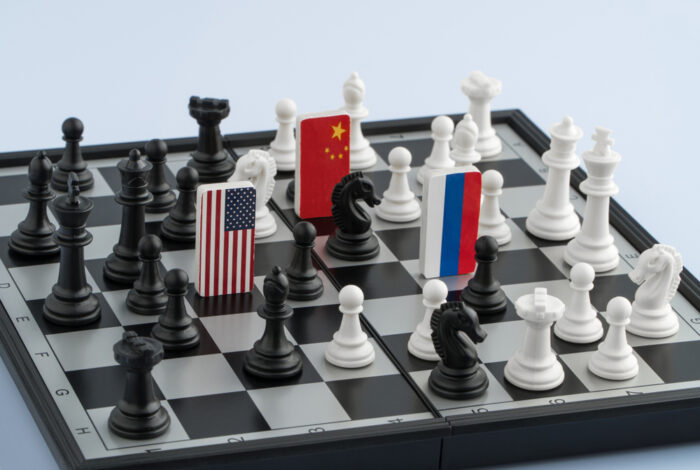The Progressive Post
A new direction for a more European NATO

When, back in 2021, as the Foreign Minister of Spain, I approached NATO Secretary General Jens Stoltenberg about Spain hosting the 2022 Summit, I could not anticipate the very specific circumstances that the alliance faces today. I could not have imagined how decisive the Madrid summit would be for peace and stability in Europe.
This is the second time that Spain hosts a NATO Summit. The first time was in in 1997. On that occasion, NATO decided to invite the Czech Republic, Hungary, and Poland to start accession negotiations. It was the first time that countries from the former orbit of the Soviet Union were invited. It was also the occasion to launch a partnership agreement between NATO and Ukraine, much along the lines of the one previously signed with Russia. The vision was one of a united Europe.
To be a second time a host country for a NATO summit is not frequent: only six other countries have done it before. But 2022 marks the 40th anniversary of Spain’s membership in the organisation, an occasion to celebrate what it has meant for Spain, as well as to contribute to the alliance’s adaptation to a more geopolitical context.
The last 40 years have seen major changes in security and defence in Spain. The country has modernised its armed forces, which today serve in 17 missions across the world. The biggest contingents are in Lebanon and Mali. Spanish troops also participate in NATO’s Eastern Enhanced Forward Presence in Turkey, as well as in the now ended training mission in Afghanistan. In a nutshell, NATO membership has meant a transformation of the Spanish armed forces for the better.
The Madrid summit also had as a fundamental objective to strengthen the transatlantic alliance by healing the divisions and frustration of the Trump era. The US President had withdrawn his country from the UN Council on Human Rights, from the Paris Climate Accords, from UNESCO, and had threatened to do the same with NATO. Despite the disorderly exit from Afghanistan, the arrival of Biden to the presidency was a breath of fresh air. President Biden had the task to recompose America’s foreign policy, reorienting it towards multilateralism and towards a firm defence of NATO. I am convinced that Spain and the entire European Union will be standing with the US in this endeavour.
But the war in Ukraine overturned the initial agenda. We are at a turning point with the return of power competition, and the return of military conflict between states on European soil. The illusion of a Western military supremacy after the fall of the Berlin wall, that would safeguard us against conflict on a continent that had seen two world wars and a Cold War has been shattered.
Against this backdrop, the Madrid Summit was about giving NATO a new direction with the adoption of the ‘Madrid Strategic Concept’. The last one was adopted in Lisbon, in 2010, and it has not aged well as is evident from its initial paragraphs. It reads “Today, the Euro-Atlantic area is at peace and the threat of a conventional attack against NATO territory is low. That is a historic success for the policies of robust defence, Euro-Atlantic integration and active partnership that have guided NATO for more than half a century”. These sentences do not read well when one remembers that already in 2008 Georgia and Russia had fought over South Ossetia and Abkhazia in a war that lasted five years with over 800 casualties, and that, already back in, 2014 Russia had annexed Crimea.
The new direction for NATO must take account of the changes in the global landscape and the definition of new geopolitical risks the alliance faces:
- The return of the risk of a conventional attack on the alliance, as demonstrated by the war in Ukraine. Putin’s Russia is a clear threat to NATO.
- The increase of disinformation and threats to cybersecurity, as well as the weaponisation of migration at almost all of the alliances’ borders in Europe, to the north, the east and the south. These hybrid threats seek to achieve results without having to wage a real war, pitting societies – not armies – against each other, blurring the distinction between fighters and citizens. They seek to exploit economic, political, diplomatic, and technological vulnerabilities, breaking communities, electoral systems, or energy networks.
- Risks linked to climate change are on the rise. Security and climate are two sides of the same coin and climate change is a multiplier of crisis’ that are making our world more dangerous, increasing competition for scarce resources like water and soil, and forcing millions to flee their homes. The fight against climate change must be a priority for the members of the alliance.
- The ‘China factor’: on the one hand, many of the challenges the world faces from climate change to oceans, and from financial stability to trade, cannot be tackled effectively without China. On the other hand, China is promoting alternative models of governance that collide with those of the alliance. ‘Partner’, ‘competitor’ and ‘systemic rival’: this is how the European Union defines the Asian giant; the question is which proportion NATO accords to each of these three elements.
- Terrorism: until the 9/11 attacks in the USA, terrorism was considered essentially a domestic issue, outside NATO’s realm, which focused exclusively on collective defence. But the brutal attack on the US, followed by Casablanca, Madrid, London, Bali, Mumbai and many others, confirmed the need to change the approach and consider terrorism as a real threat to euro-atlantic security.
Today, an important epicentre of this threat lies in the Sahel, a vast area where the prospects of winning the war against terrorism are rather dim in the medium or short term. In terms of security, the Sahel is one of the most challenging and destabilising areas around the world.
With these challenges incorporated in the future direction of the Alliance, the NATO of the future must be capable of responding to three main questions:
The first question has to do with the articulation between NATO and European defence. It is high time we leave behind the old discussion about the risks of duplication or overlaps. The Europeanisation of NATO, after Finland and Sweden’s entry, as well as Denmark’s opt-in to the European Security and Defence framework must lead to greater responsibility and investments by Europe in its own defence, starting with its industry, but also the defence of the eastern and southern flanks, which is where the most tangible risks to its security lie.
The second question has to do with the definition of NATO’s framework of action. It is a key challenge to the organisation and one that will be intensely scrutinised especially given NATO’s greater European footprint. There are different views within the alliance about the role that NATO should play in the Indo-Pacific, concerning China. I believe it would be wiser to prevent rather than cure. Perhaps, this is the time to establish a permanent cooperation forum with China, based on transparency, and seeking to create spaces for dialogue. Being firm about interests and values, but being equally open to discussion. With a China that is growing stronger economically, militarily, and technologically, the alternative would lead us to a fragmentation of the international order. Which would most likely precipitate the very conflicts we are seeking to avoid.
The third question NATO needs to answer has to do with deterrence, and in particular nuclear deterrence, which has been a key pillar of our defence doctrine. The mutual damage that two nations could inflict on each other constituted a red line that no one was ready to trespass – or, at least, this is what we believed. In Ukraine, deterrence is formally there, but it has not prevented us from being in conflict with Russia. But more importantly, the war in Ukraine will accelerate an arms race and lead to nuclear proliferation in a world that, at the same time, is less governed by international law. The alliance should redefine the concept of deterrence. NATO’s Europeanisation should open other avenues, like economic deterrence or the EU’s normative power.
NATO’s redefinition will be an essential feature for building security, peace, and freedom in the medium to long term. The ‘European factor’ matters. It can bring a fresh vision for the need to invest in the well-being of societies, in diplomacy and in a modern military posture that moves us away from the need to choose between eternal wars or annihilation.
Photo credits: © North Atlantic Treaty Organisation




